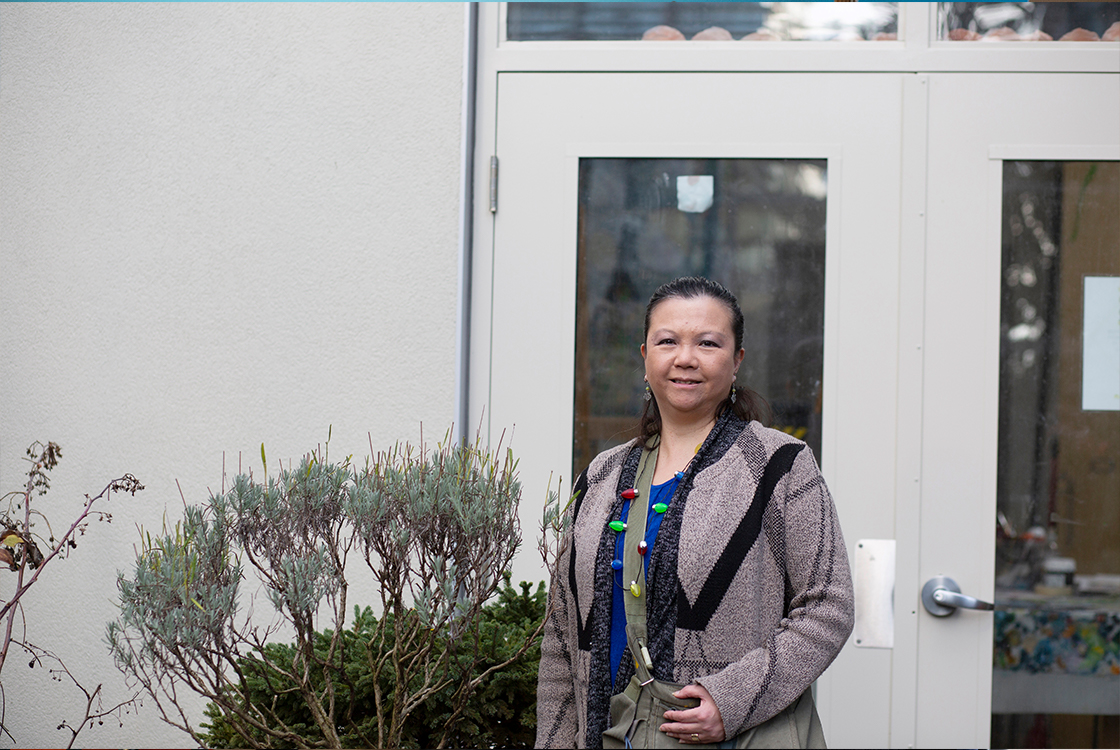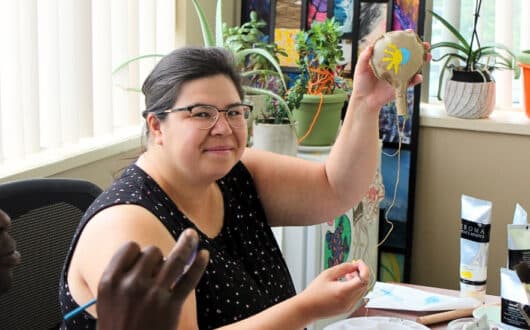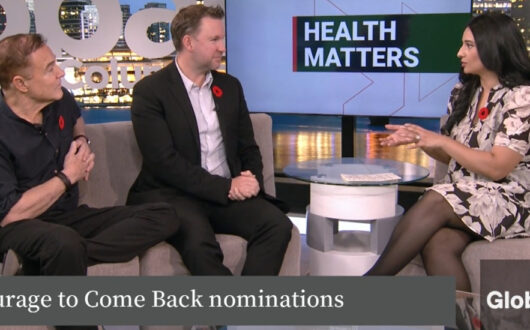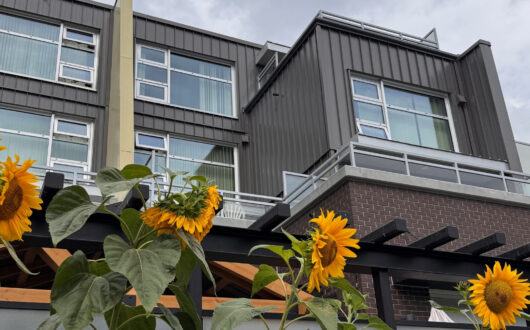Wing’s story – Peer Support Success
When Wing started to train as a Peer Support Worker, she began building a brighter future for herself and for people like her.
“I feel a sense of gratitude to have this space here for me to work with supportive people. I don’t know where I’d be without this place.” says Wing.
How can peer support change someone’s life?
When folks are recovering from mental illness, it can sometimes be hard for them to see the way forward. While doctors, social workers and the other members of a typical support team are skilled and knowledgeable, they often don’t have lived experience of the kinds of obstacles that people are trying to overcome.
Peer Support Workers like Wing can help. Wing uses the benefit of her own recovery experience, plus her training from Coast, to help people like her. They can face mental illness with hope instead of fear.
Thanks to the generosity of our donors, Coast Mental Health offers innovative programs that enrich the lives of our clients.
“A purpose and a structure to my life”
Initially, Wing received peer support herself. Today, she’s a Peer Support Worker.
Peer support works because it gives specialized training to people who have learned to manage their mental health challenges. Participants understand the struggles that come with experiencing mental illness because they have lived it themselves and have learned to manage it.

To become a Peer Support Worker, applicants complete a four-stage training program, including Life Skills Training, a 3-month curricular component and 6 months of supported work experience.
“It was a very thorough program,” says Wing
“And we studied a lot of things including obviously mental health and boundaries. We also did group work and a team project together. And we also did excursions where we went to Science World, and up to the top of the Sears Tower – that was fun. It was professional and also kind of casual and laid-back. I felt it was a very informative program.”
After completing training, Peer Support Workers often come back to brush up their skills or take part in extended training — and they remain supported for one year post-graduation by Coast staff for work or anything else they need.
Today, Wing is facilitating art recovery, Bingo, and other programs at Coast that help folks build structure into their lives. “And this gives me a purpose and a structure in my life,” says Wing.
Pivoting in the pandemic
During the pandemic, your generosity helped programs like this one pivot to be Covid-wise. When COVID first hit, restrictions meant every single Peer Support Worker could no longer work. To mitigate the devastating impact this loss of income could have, we established a basic income for those who wanted it.
We also established a website for folks to connect remotely, with regular phone check-ins too. These important measures were only possible thanks to the generosity of donors.
In August we successfully brought 20 Peer Support Workers back to work and have resumed 7 social programs at the Resource Centre and the St. Helen’s Hotel. We were even able to complete a peer support training that COVID interrupted with an additional 8 carrying out their practicum.
“Folks who utilize our services, including one- to-one time with our Peer Support Workers and at St. Paul’s Hospital on the psychiatric wards, have been very grateful to have in-person support. Additionally, we were able to run 2 WRAP (Wellness Recovery Action Plan) workshops in September and October with 5 graduates in total.” says Fraser Mackenzie, program manager.
“The success story we see is the resilience our Peer Support Workers have demonstrated during COVID. They inspire that same resilience in others to this day.”
They are helping to meet the growing demand within Greater Vancouver’s mental health support network, and they are giving hope to young people just like them.
Your support for these programs means everything to someone on the road to recovery.
For someone like Wing, it’s a bright start to a lifetime helping others.
Read more about the impact of your support in Coast Mental Health Foundation’s 2020/2021 Gratitude Report.


